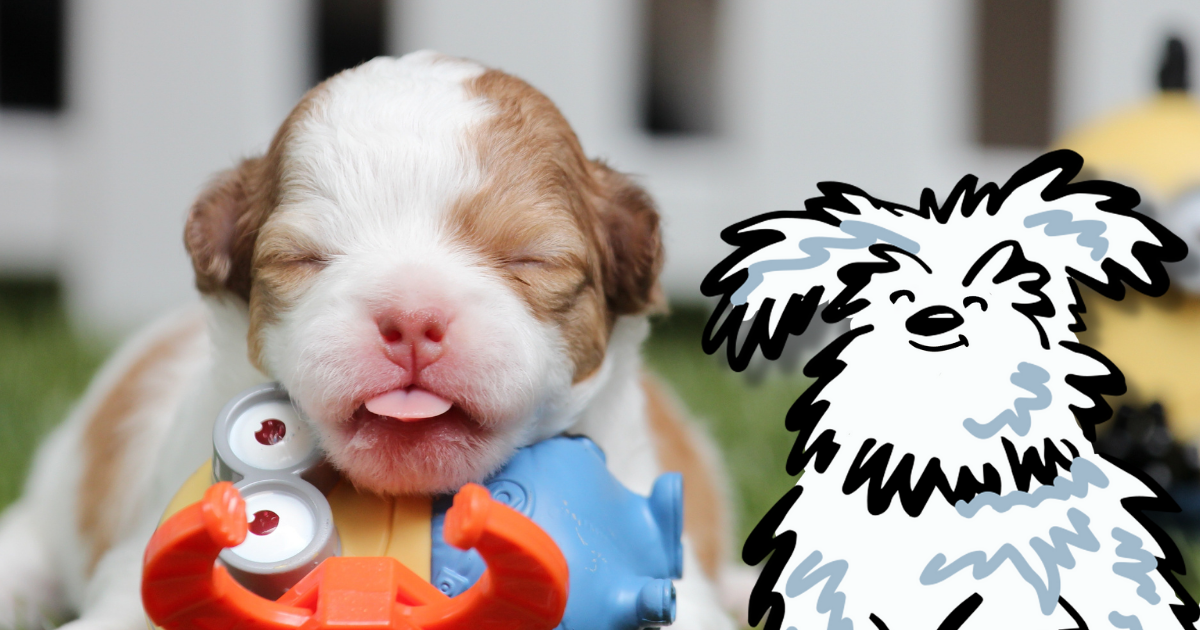
Understanding and Preventing Parvo in Puppies
July 28, 2023What is Parvo
Parvo, short for parvovirus, is a highly contagious viral disease primarily affecting dogs, especially puppies. It attacks the gastrointestinal tract and can also affect the heart. The virus can survive in the environment for long periods, making it a significant threat to puppies.
Can Puppies Get Parvo
Yes, puppies are particularly vulnerable to parvo due to their immature immune systems. Puppies between six weeks and six months old are at the highest risk of contracting the virus. However, unvaccinated adult dogs can also be susceptible.
How Can Puppies Acquire Parvo
Parvo is typically transmitted through direct contact with an infected dog's feces or contaminated environments. Puppies can contract the virus by sniffing or licking infected surfaces, interacting with infected dogs, or even through contact with objects that carry the virus.
Is Parvo in Puppies Contagious and How Long Is It Contagious
Yes, parvo is highly contagious among dogs. The virus sheds in an infected dog's feces, which can remain infectious in the environment for months or even years. It is crucial to note that the virus can withstand extreme temperatures and disinfectants, making thorough cleaning and disinfection essential.
Symptoms of Parvo in Puppies:

- Severe diarrhea, often bloody - Parvo causes profuse, watery diarrhea with a strong odor, often accompanied by blood.

- Vomiting - Puppies with parvo experience frequent vomiting.

- Loss of appetite - Parvo-infected puppies show a sudden and significant decrease in appetite.

- Lethargy and weakness - Puppies become extremely tired, weak, and lack energy.

- Dehydration - Parvo leads to severe fluid loss, resulting in dehydration.

- Abdominal pain - Puppies may exhibit abdominal discomfort and show reluctance to move or be touched.
Remember, immediate veterinary attention is crucial for proper diagnosis and treatment if you notice any of these symptoms in your puppy.
How to Treat Parvo in Puppies
Treating parvo requires immediate veterinary intervention. Treatment usually involves hospitalization, intravenous fluid therapy, medication to control vomiting and diarrhea, antibiotics to prevent secondary infections, and supportive care to stabilize the puppy's condition. It is important to seek professional help as soon as symptoms are noticed.
How to Prevent Parvo in Puppies
Preventing parvo in puppies requires a multi-faceted approach that includes vaccination, hygiene practices, and providing proper nutrition. Here are essential steps to safeguard your puppy's health:

Vaccination
Ensure puppies receive the complete series of vaccinations, including the parvovirus vaccine, starting at around six to eight weeks. Vaccination is crucial in protecting puppies from parvo and boosting their immune response.

Limit exposure
Avoid contact with unknown or unvaccinated dogs until the puppy has completed the vaccination series. Prevent your puppy from visiting public areas, such as dog parks or places with a high concentration of dogs, where they might come into contact with infected feces.

Sanitation
Regularly clean and disinfect living areas, toys, food bowls, and any objects that may come into contact with infected feces. Use appropriate disinfectants recommended by your veterinarian to ensure thorough cleaning.

Salmon oil supplementation
Consider incorporating salmon oil into your puppy's diet. Salmon oil is rich in omega-3 fatty acids and can support a puppy's immune system and overall health. It may help strengthen their natural defenses against infections like parvo. Choose a high-quality salmon oil supplement for dogs and follow the recommended dosage guidelines. Our salmon oil for dogs is a premium and trusted supplement that can be crucial in supporting your puppy's health and preventing parvo.

Isolation
Keep puppies away from areas frequented by other dogs until they are fully vaccinated. This includes avoiding contact with dogs of unknown vaccination status or those showing any signs of illness.

Responsible ownership
Practice good hygiene by washing hands thoroughly after handling dogs or cleaning up feces. This helps prevent the spread of the virus and other potential infections.
Regular veterinary check-ups and adherence to recommended vaccination schedules remain essential for protecting your puppy from parvo and other diseases.
By implementing these preventive measures and providing a balanced and nutritious diet, including salmon oil, you can significantly reduce the risk of your puppy contracting parvo and promote its overall well-being.
Conclusion
Understanding parvo in puppies is crucial for every dog owner. It is a highly contagious and potentially life-threatening disease that requires immediate attention. By recognizing the symptoms, seeking prompt veterinary care, and implementing preventive measures, we can protect our puppies from the devastating effects of parvo. Remember, vaccination, cleanliness, and responsible ownership are the key pillars in preventing parvo and ensuring the well-being of our furry friends.
